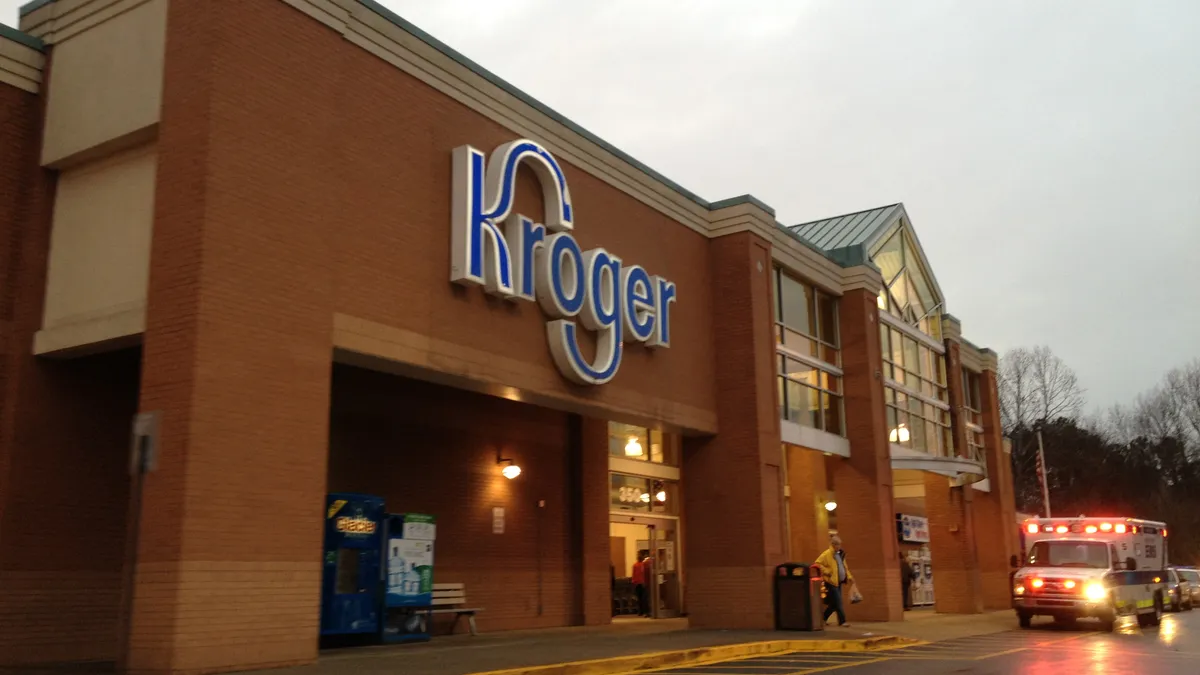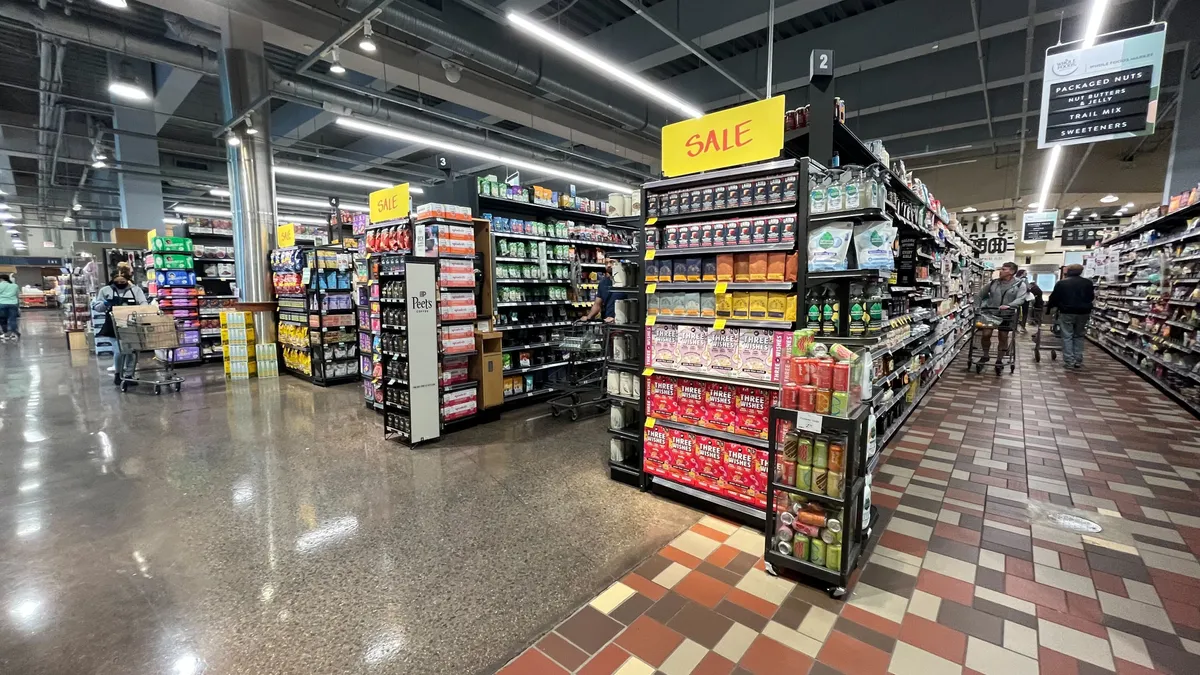Dive Brief:
- Kroger reported net sales of $37.5 billion, up 2.3% from $36.3 billion during the same period a year ago, according to a company release. Profits were up $626 million, excluding the company’s $1.8 billion sale of its convenience store business, compared to $546 million in the first quarter of 2017. Kroger’s stock price surged 8.5% in mid-morning trading.
- Same-store sales increased 1.4%, marking the fourth-straight quarter of comparable growth for the grocery giant, while digital sales rose 66%. Gross margins were 21.8% of sales, down 13 points from the same period last year.
- Kroger adjusted its guidance for the year, saying it expects earnings per share of between $2 and $2.15, up from $1.95 to $2.15 previously. “Restock Kroger is off to a fantastic start,” CEO Rodney McMullen said in the release. “Everything we do supports our customers engaging seamlessly with Kroger. Kroger is creating the future of retail by innovating our core business and adding exciting partnerships like Ocado and our planned merger with Home Chef.”
Dive Insight:
After a challenging fiscal 2017, Kroger's recent initiatives are showing signs of paying off. Its Restock Kroger plan, announced last fall, continues to pay dividends by focusing on cost controls, operational efficiency and directing free cash flow into promising investments.
Two of those investments included a $250 million deal with British e-grocer Ocado and the $200 million acquisition of meal kit maker Home Chef, both announced in May. The Ocado partnership aims to bring automated fulfillment to Kroger stores across the country and should bring down costs, boost order accuracy and allow the grocer to reach parts of the country where it doesn’t have a presence, such as the northeast. It is a time-intensive investment with the first Ocado facility expected to come online in two to three years.
The Home Chef buy gives Kroger a valuable brand and considerable expertise in what’s become a high-growth category. Meal kits from leading brands like Blue Apron and Hello Fresh are moving into supermarkets as companies try to reach new consumers, and Kroger’s play highlights its intention to become a sales leader. The in-store selling power of meal kits going forward is far from certain, but the acquisition gives Kroger access to Home Chef’s profitable online business that it can use to complement other services it offers.
"Kroger has started its fiscal year on an optimistic note, with solid increases in both total and underlying sales," Neil Saunders, managing director of GlobalData Retail, said in a statement. "Kroger remains in a very pressured part of the retail market. However, we believe it is getting to grips with the challenges and is future-proofing its business. ... While further investments may be needed to maintain a competitive edge, Kroger is now on a much more stable footing than it was a year ago and is winning the battle against other rival chains like Albertsons."
In addition to these marquee deals, Kroger is rolling out store technology aimed at boosting efficiency as well as the store experience. By the end of this year, around 200 stores will have digital shelf displays that tie in with a customer's smartphone to offer personalized deals. For years, Kroger has focused on internal technological innovations, too — everything from temperature control to labor management systems. Earlier this year, the retailer announced a commercial venture to begin leasing its technology to other companies.
Beyond its acquisitions and innovations, Kroger wants to make sure its stores are getting the best sales production possible. Its private label lineup continues to grow, responsible for nearly 30% of total sales. Brands like Simple Truth have become household names. Kroger also is optimizing its store space and empowering managers to shift layouts and assortment as needed. During the Restock Kroger rollout, executives talked about every product needing to earn its place in the store. The company’s leading data collection and processing capabilities will inform these decisions.
Kroger is under considerable pressure from Walmart and Amazon, both of which are rolling out home delivery and introducing price discounts. Whole Foods stores are seeing healthy traffic boosts from price cuts aimed at Amazon Prime members. There are a host of other players taking aim at Kroger, including discounters Aldi and Lidl, other conventional grocers and a new generation of natural and organic retailers such as Sprouts Farmer’s Market.
So despite Kroger’s strong top line this quarter, it’s still under considerable pricing pressure that will likely temper investors’ enthusiasm. Gross margins were 21.8% of sales — down 13 basis points from the same period a year ago — a sign the company is facing higher expenses and pricing pressures in order to remain competitive.
"The push of own brands has also been helpful both in protecting margins and in differentiating Kroger from rivals," Saunders said. "Even so, the continued growth of discounters like Aldi, Lidl, and the dollar stores, may necessitate further price cuts."
Kroger will hope to continue gaining sales momentum through the rest of the year, though the competition certainly won’t make it easy.










